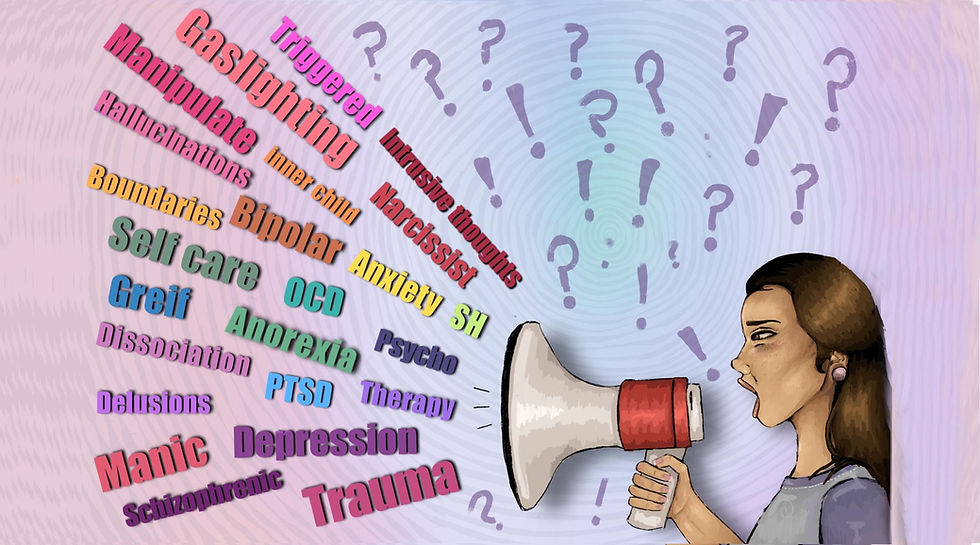Join Steven & Friends TONIGHT for "When Chaos Hits!" with Warriors for Life (WFL)
- Col (Ret) Mikel Burroughs

- Nov 11, 2025
- 3 min read
Join our Volunteer, Air Force Veteran, Peer Support Specialist, and Writer/Author Steven Bates TONIGHT for "Mid-Week Musings!" edition of Warriors for Life (WFL) Online, sponsored and presented by Victory for Veterans, Inc. (VFV).
We are asking everyone to share who we are and what support that Victory for Veterans, Inc. (VFV) is providing via WFL. If you know someone who is a veteran, first responder or a family member/caregiver, please ask them to join us for at least one meeting so they can learn more about what we do and how they can share their wisdom with others who may be able to learn from them.

TONIGHT's Topic: "When Chaos Hits!"

"Chaos. What is it? One anagram for CHAOS is Calamities Hindering All Objective Solutions! Or, Quite simply, complete disorder. So how do we recover from chaos? How do we find a solution that a crisis is preventing us from achieving? How do we find calm in the calamity? Is it even possible?"
Effects of Chaos on Mental Health

Chaos negatively affects mental health by increasing stress, anxiety, and depression, and by impairing focus and cognitive function. Experiencing a chaotic environment, whether through clutter, noisy households, or unstable life events, can lead to emotional exhaustion, poor sleep, and a diminished ability to cope with daily life. In severe cases, chronic chaos can lead to more significant psychological issues, and its effects can be more pronounced in children who are still developing.
Effects on Veterans & First Responders
Increased stress and anxiety: Chronic chaos can lead to a state of constant stress, making it difficult to feel stable and secure.
Cognitive overload: A disorganized environment can increase cognitive load, making it harder to focus, process information, and remember things, as brain "likes order".
Emotional exhaustion: Constant conflict and emotional turmoil are draining, leading to feelings of burnout and a lack of energy to deal with other aspects of life.
Impact on Veterans & First Responders: A higher risk for mental health issues like anxiety, depression, and behavioral problems.
"Chaos addiction": Some individuals may develop a need for drama and chaos, feeling anxious or empty without it, which can lead to self-created problems and unstable relationships.
Psychological theories
Chaos Theory: This theory suggests that small changes in initial conditions can have large, unpredictable outcomes, a concept that applies to mental health. A small negative event can trigger a cascade of negative thoughts and feelings, much like the butterfly effect.
Brain function: Disruptions in the brain's natural "chaotic" dynamics may be linked to mental health conditions like depression, anxiety, and schizophrenia. Researchers are exploring ways to use this understanding to develop new therapies.
How to Cope with Chaos

To recover from chaos, focus on establishing routines, practicing stress-reduction techniques like deep breathing or meditation, and prioritizing your physical and mental well-being through exercise and healthy habits. It is also helpful to create structure, set boundaries, manage your input, and find a sense of grounding through practices like mindfulness or faith.
Establish structure and routine
Create a routine: Having a consistent daily structure can provide a sense of control and stability.
Plan and organize: Set aside time to plan meals, make grocery lists, or tackle a small project to reduce feelings of being overwhelmed.
Set boundaries: Protect your time and energy by setting boundaries with others and managing your social media and news consumption.
Prioritize health and well-being
Prioritize physical health: Ensure you get adequate sleep, eat healthy foods, and engage in regular physical activity.
Practice mindfulness and breathwork: Focus on being present through techniques like deep breathing, meditation, or spending time in nature.
Acknowledge emotions: Allow yourself to acknowledge and process negative emotions, rather than suppressing them.
Manage your mindset
Reframe thoughts: Focus on what you can control and try to reframe negative thoughts to be more positive.
Be selective about input: Be mindful of the information and media you consume, as it can have a significant influence on your mental state.
Find a sense of grounding: Connect with a belief system or practice, like faith or spending time in nature, that helps you feel anchored.
Let go of expectations: Surrender expectations about how things "should" be in order to increase your adaptability and endurance.
Tonight we'll discuss "Going from Crisis to Calm" with Air Force veteran, author, and Peer Support Specialist Steven Bates during the Warriors for Life Mid-Week Musings peer support group network. Join us as we converse on converting chaos to calm, crisis to comfort, and catastrophes to harmonies.
Warriors for Life (WFL) Online "Mid-Week Musings!" edition presented by Victory for Veterans, Inc. (VFV) — Wednesday (TONIGHT), November 12, 2025, @ 4:30 PM PT, 5:30 PM MT, 6:30 PM CT, & 7:30 PM ET
Join Zoom Meeting: https://us06web.zoom.us/j/87440882846
Thank you,
Steven Bates
Air Force Veteran, Writer/Author, Peer Support Specialist, &
Volunteer Facilitator, Victory for Veterans, Inc.









Comments